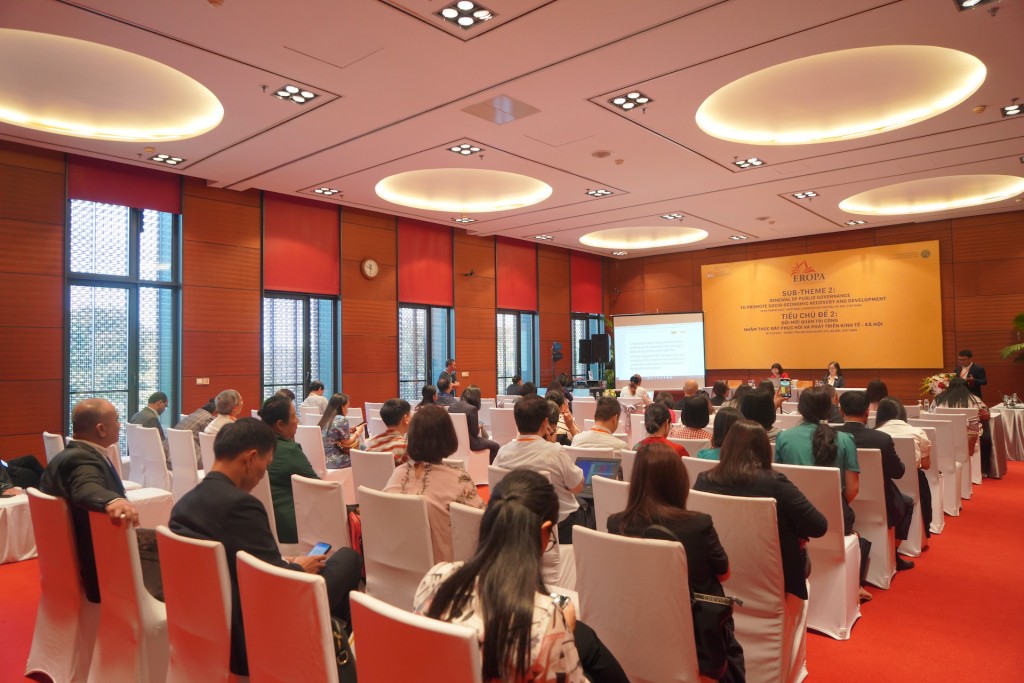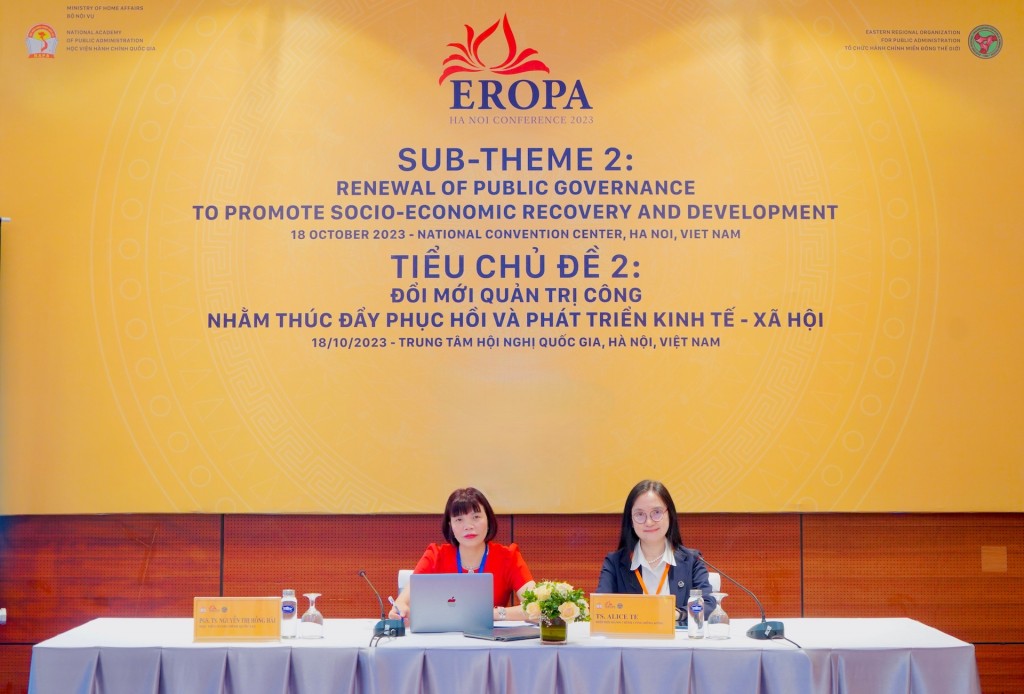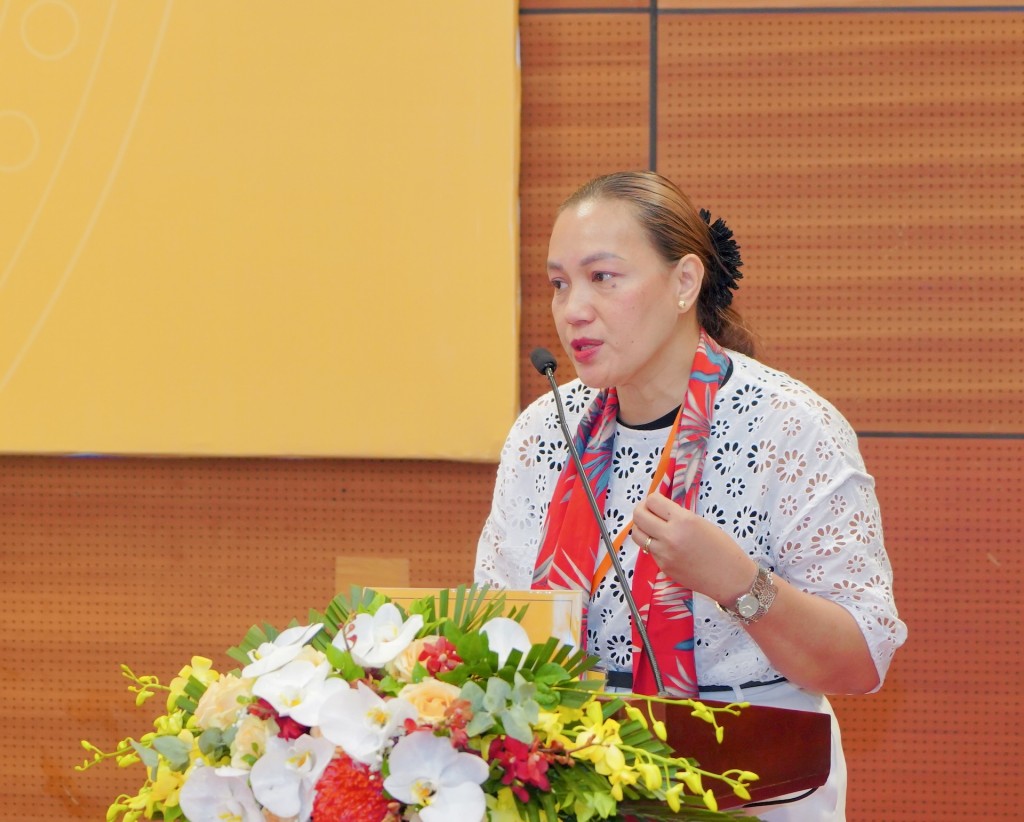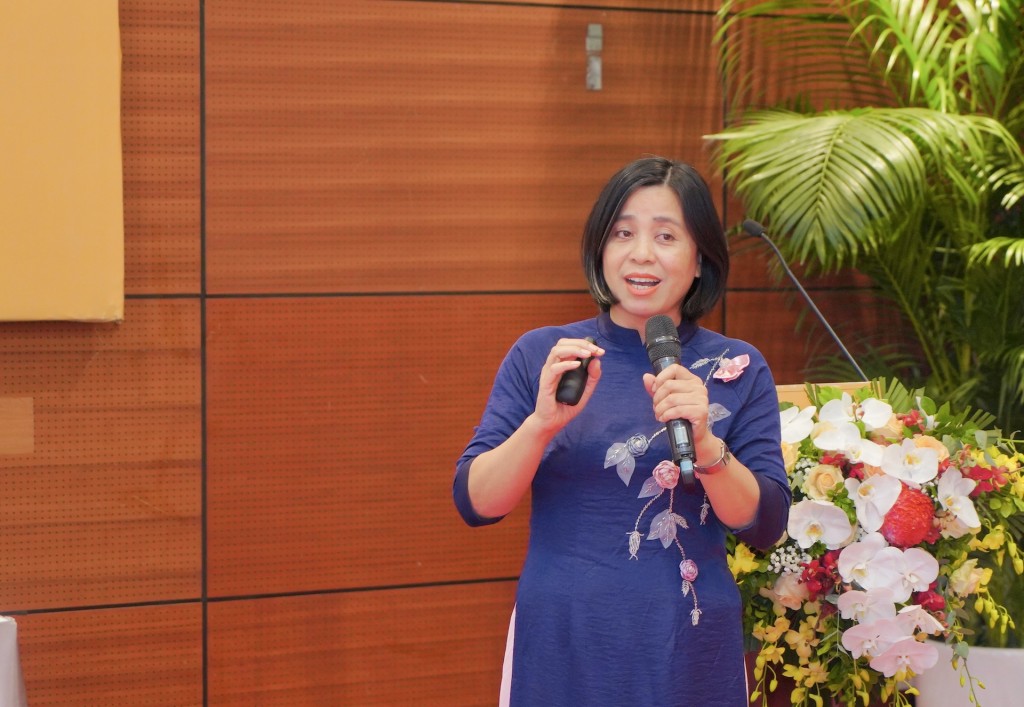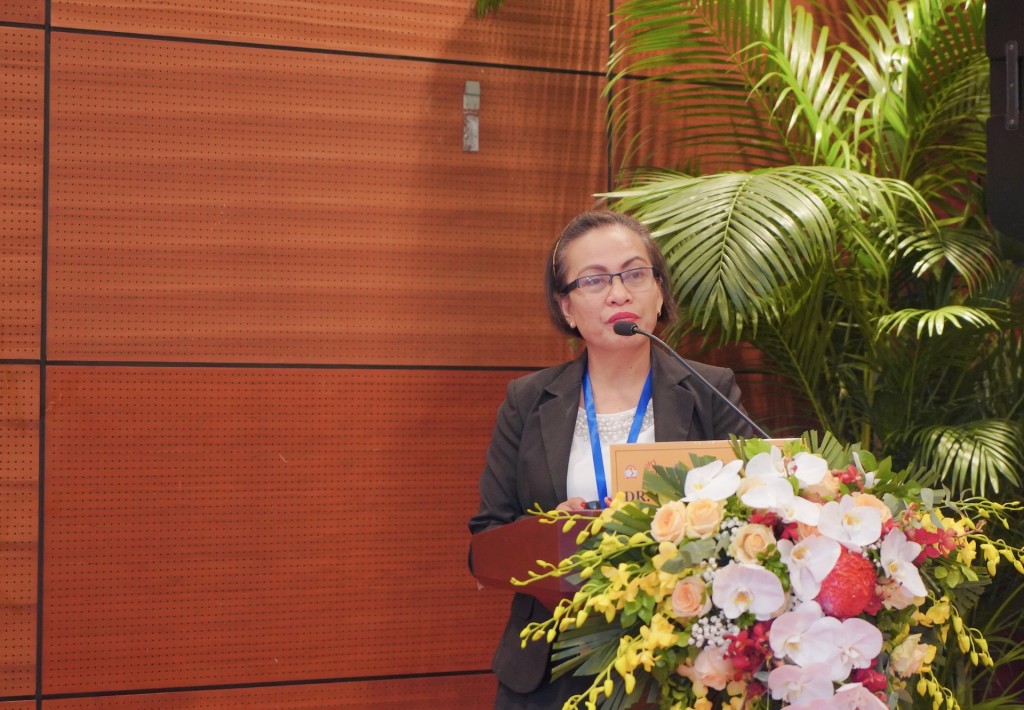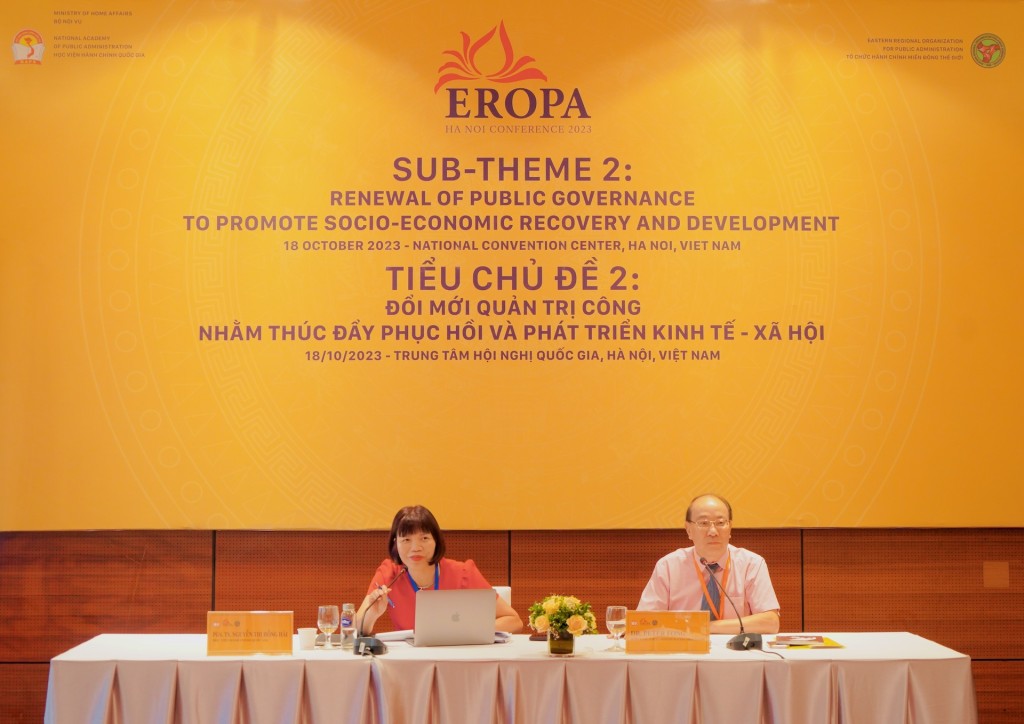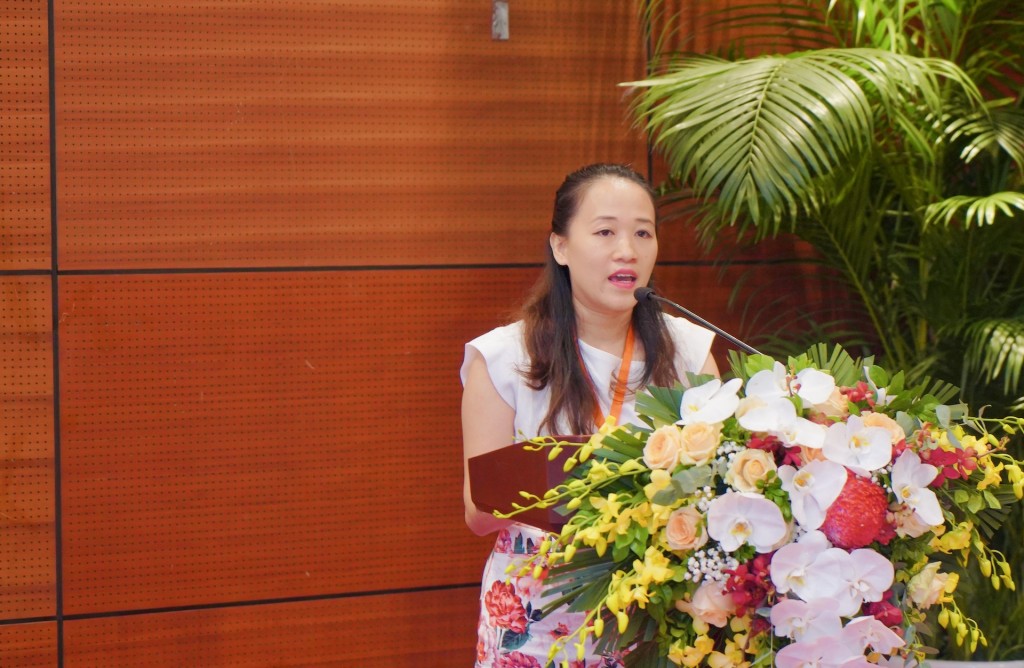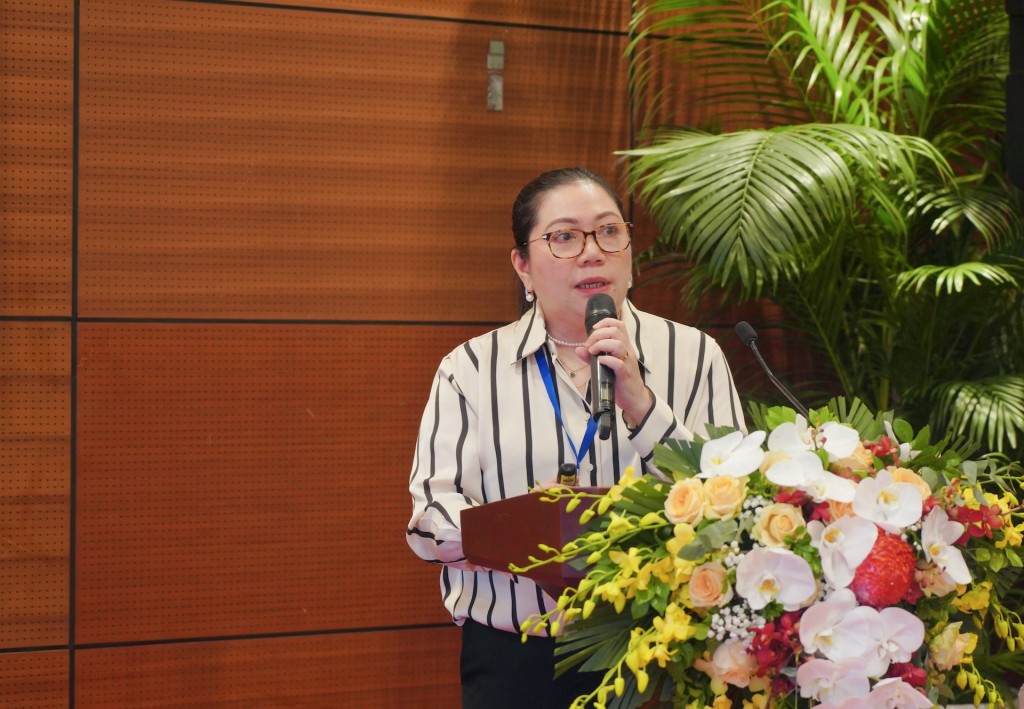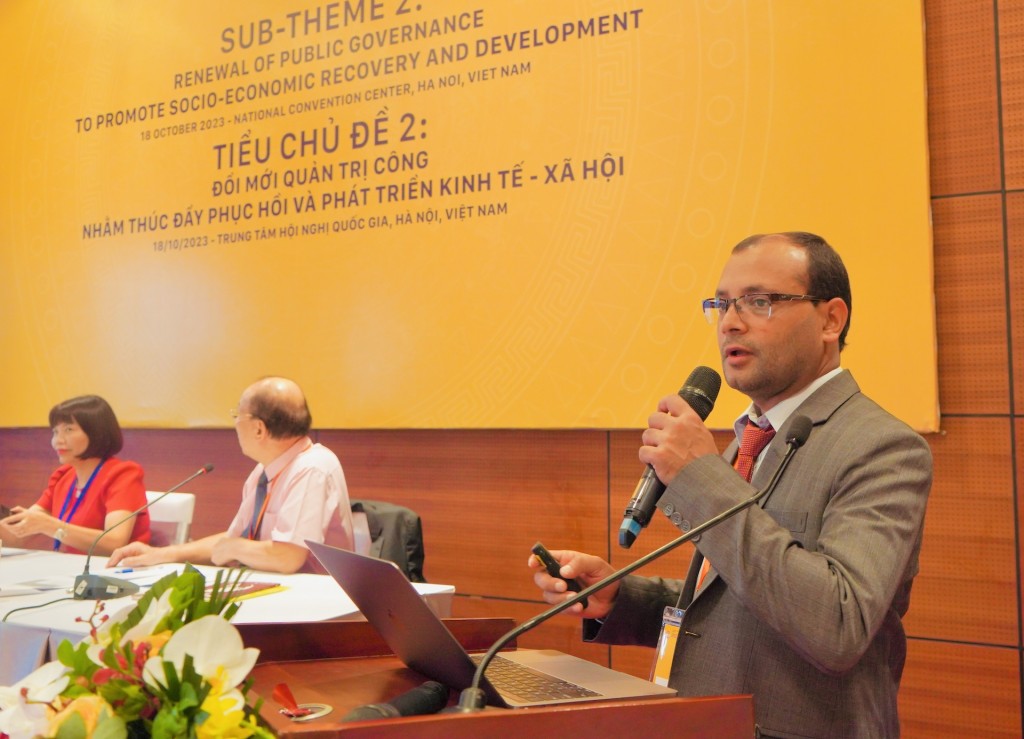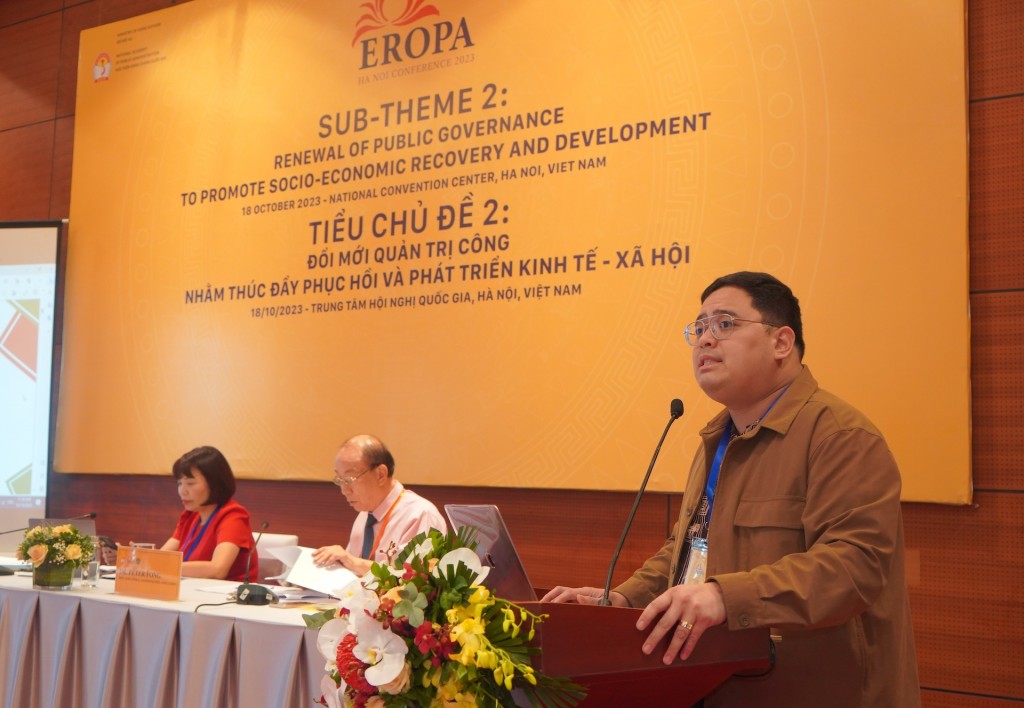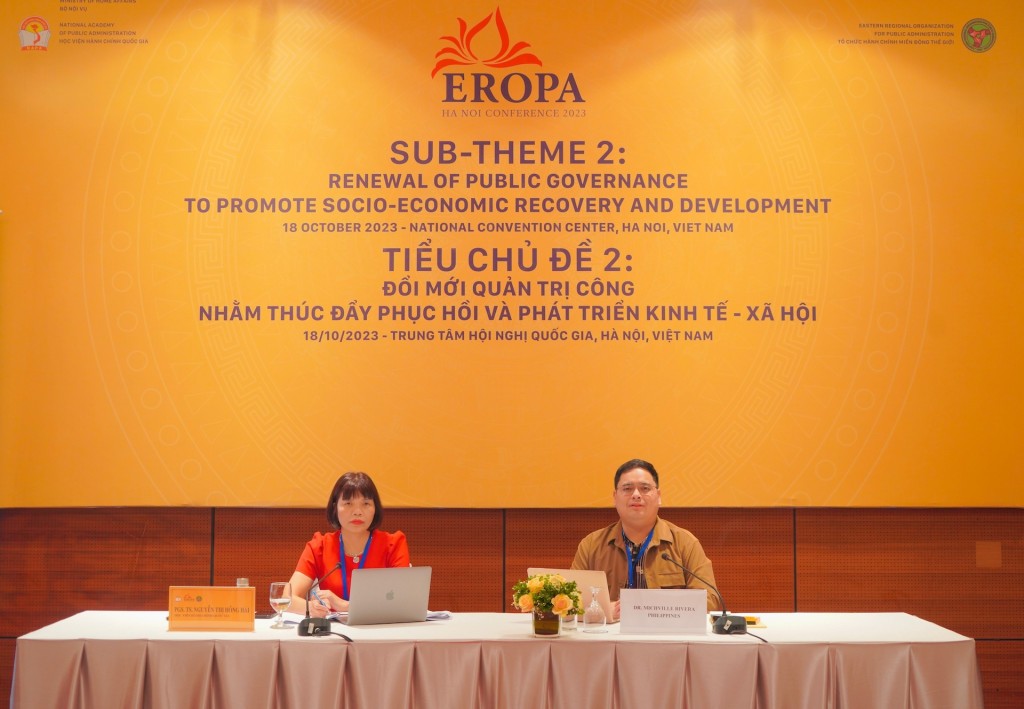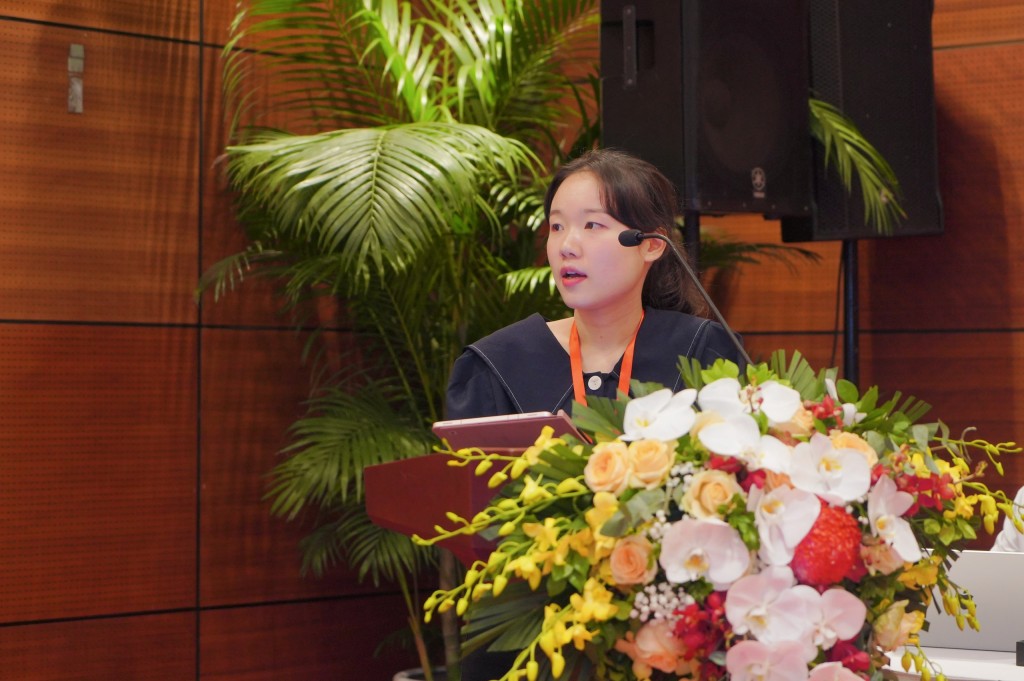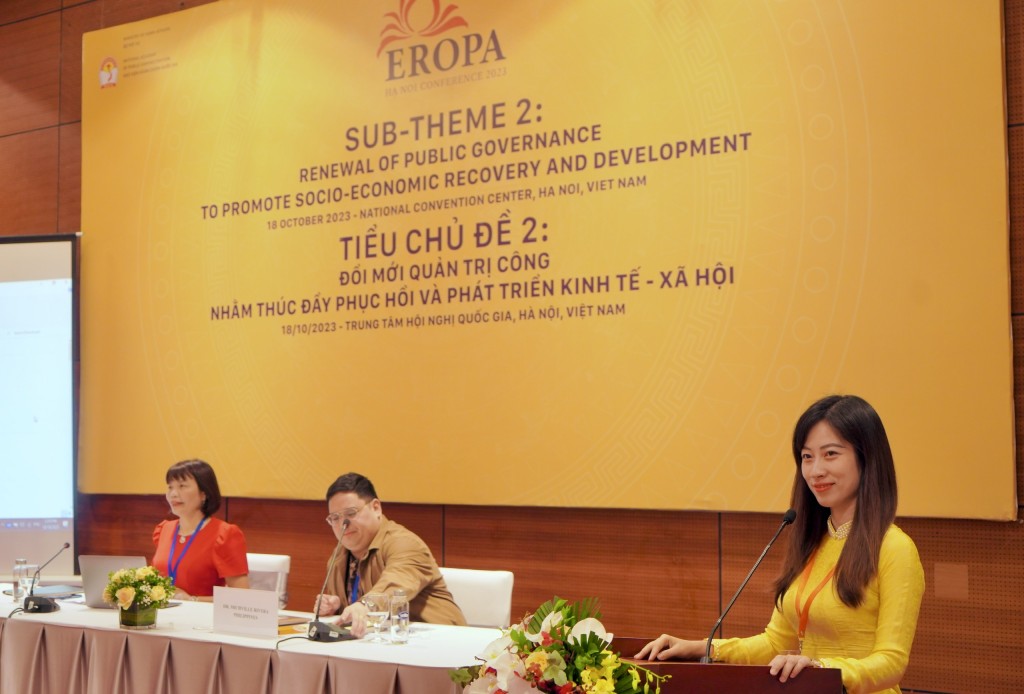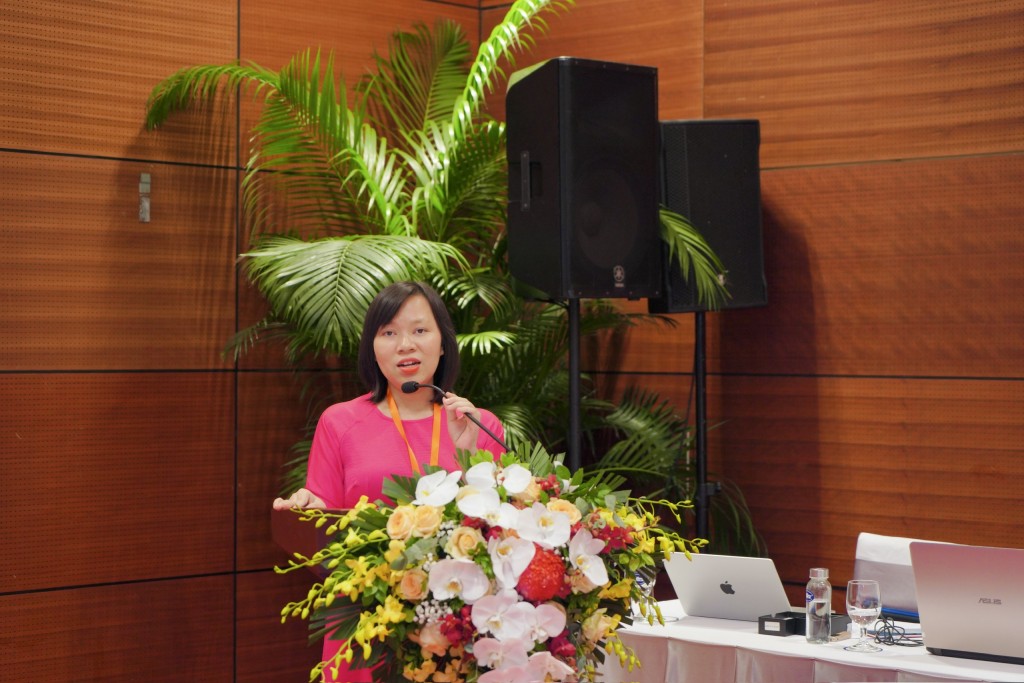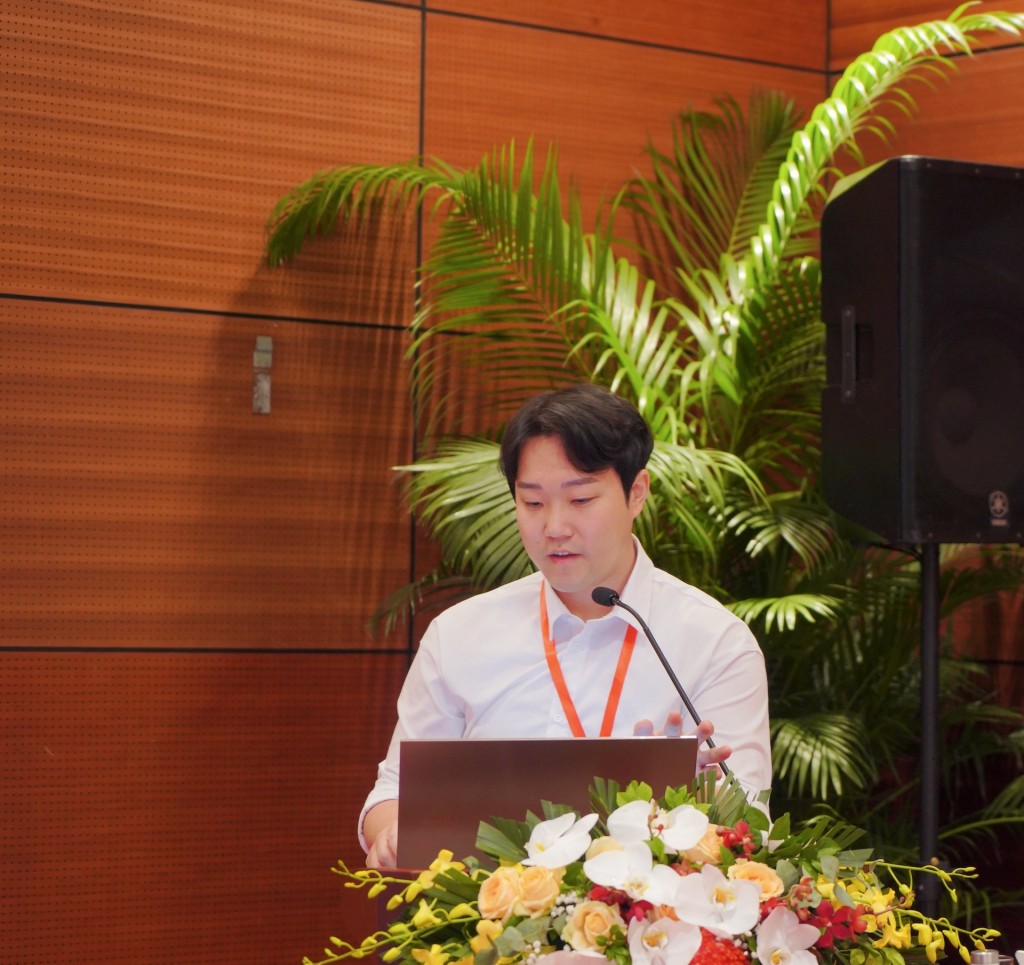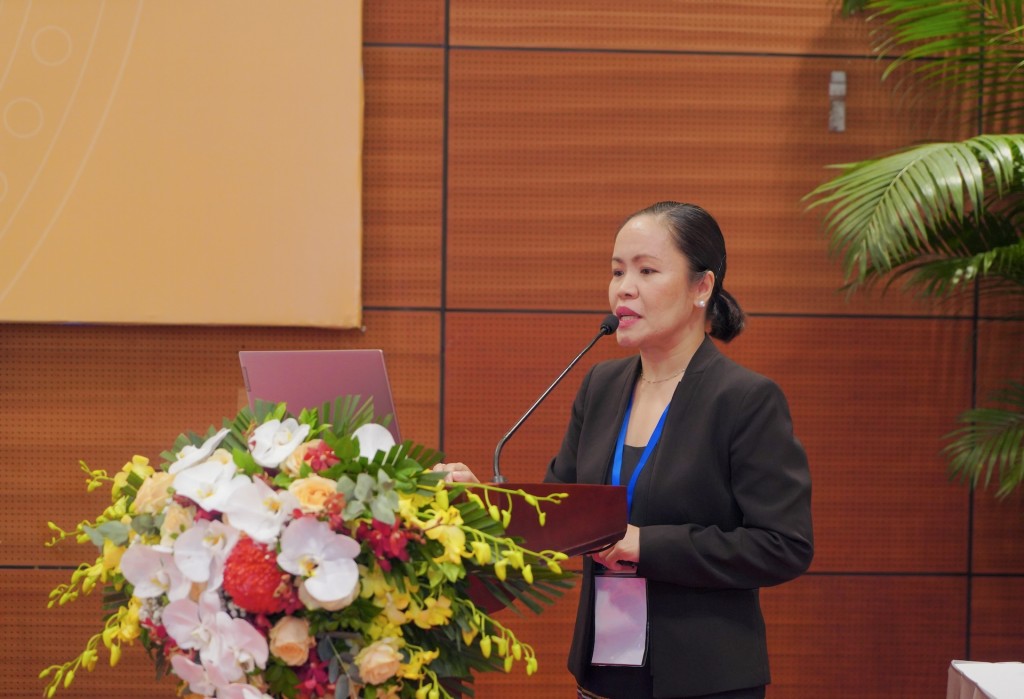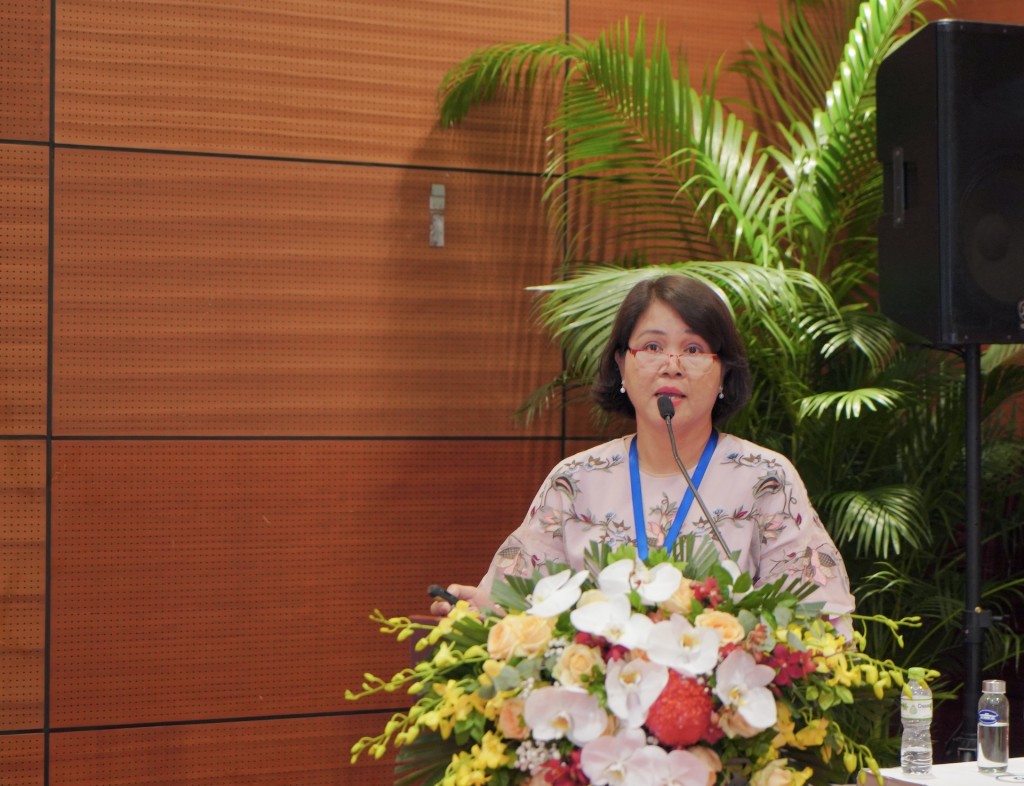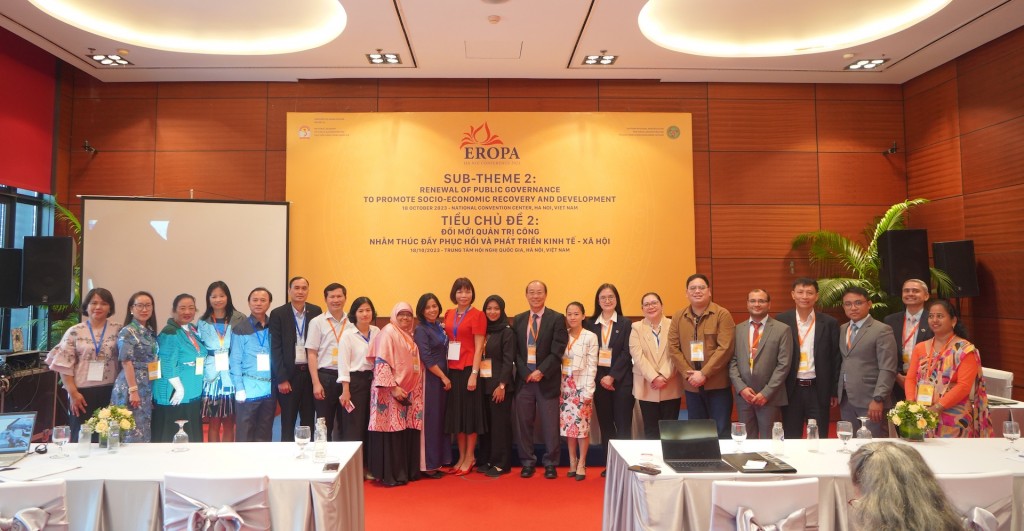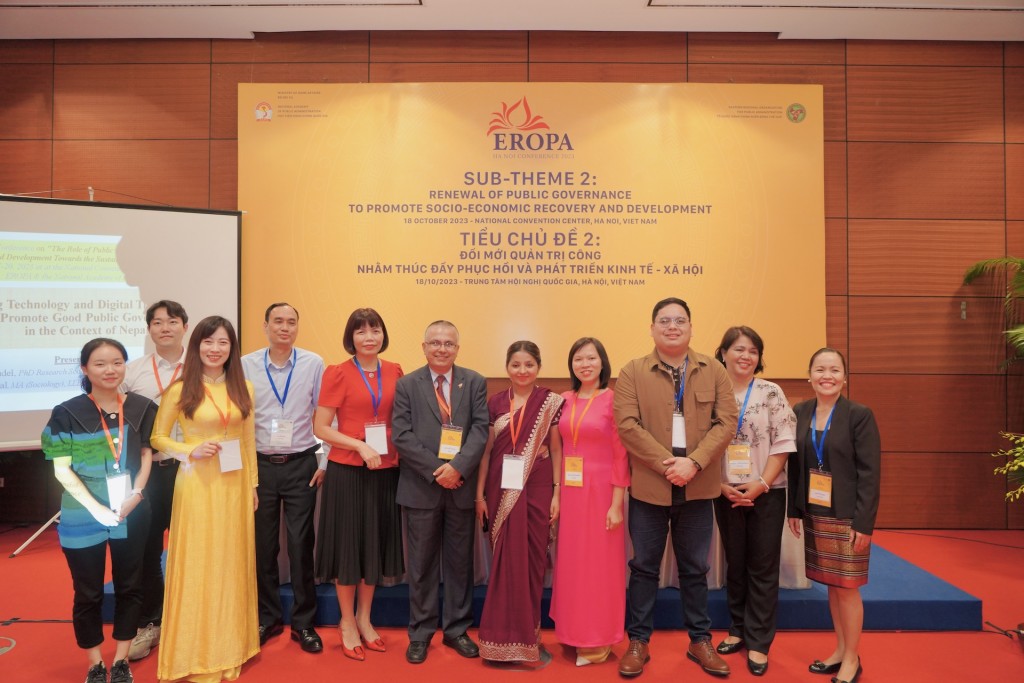On October 18, at the National Convention Center, Hanoi, three parallel sessions took place as part of the program of the 2023 EROPA Conference. Three sub-themes of the Conference are “Socio-economic recovery and development: Issues raised and the need for renewal of public governance”; “Renewal of public governance to promote socio-economic recovery and development”; “Building public governance capacity to promote socio-economic recovery and development”.
Morning session 1, Sub-theme 2 (Part 1)
On the morning of October 18, the sub-theme 2 session titled “Renewal of public governance to promote socio-economic recovery and development” was moderated by Dr. Alice Te, Hong Kong Public Administration Association and Assoc. Prof. Dr. Nguyen Thi Hong Hai, National Academy of Public Administration.
Discussion at the morning session included 10 presentations by Ms. Maricel Fernandez Carag, Dr. Nguyen Thi Thu Cuc, Prof. Emma Aspiras, M.A. Nguyen Dang Phuong Truyen, M.A. Nguyen Ho Phuong Nhat, Dr. Ma. Pamela Grace Muhi, Mr. Achyut Adhhikari, Dr. Michville A. Rivera, Ph.D. Candidate Nguyen Bich Thuy, and Dr. Meita Ahadiyati Kartikaningsih.
Ms. Maricel Fernandez Carag, Philippines, presented the study “Renewing Public Governance Towards Socio-Economic Recovery and Development: The Logic of Two-Level Games”. According to her, the Covid-19 pandemic has ended the state of emergency, and every nation is now focusing on its internal affairs. However, people are living in a world that extends beyond national or state boundaries. There are common global issues, including security and crisis management, peace, human rights, gender equality, and many other challenges. Therefore, cooperation and diplomacy have now become a mandate for global governance.
The research paper uses Robert Putnam’s Two – Level Games (1988:1), which is briefly described as the entanglement of domestic and international frontiers, ushered the imperative role of ‘diplomacy and international relations’ in the theory and practice of public administration and governance. The COVID-19 pandemic is only a litmus test on how governance and public administration should collaborate with diplomacy and international relations to address the wicked problems of our time. Because governance is not enough, diplomacy must be integrated in renewing public governance at this critical juncture.
Dr. Nguyen Thi Thu Cuc, National Academy of Public Administration, Viet Nam, presented the study “Restructuring the Public Administrative Service Provision for Public Governance Renewal: The Case of Viet Nam”.
According to Dr. Nguyen Thi Thu Cuc, many countries adopted various initiatives in restructuring the public service provision public governance renewal, which range from one-stop-shop-based public service provision in a face-to-face mode to single-window-based provision in a contactless mode, from single-service based provision in a reactive manner to life-event based provision in a proactive manner. How to ensure equality and inclusiveness and to trade-off between efficiency and equality and inclusiveness in the restructuring of the public service provision in a digital transformation is to be addressed by individual public agencies. Through the case of the restructuring of the public administrative service provision in Viet Nam, the main findings reveal that despite the efforts of the governments in the provision of seamless, fully online services, the use of online services is limited due to various reasons and the necessary conditions should be available to ensure inclusiveness and equality in the restructuring of public administrative service provision in Viet Nam.
Prof. Emma Aspiras, Quirino State University, Philippines, presented the study “Economic Dynamism of Quirino Province Amidst Pandemic: Take-off Point as a Competitive Province in the Philippines”. This study aims to determine the performance of each municipality of the province of Quirino along economic dynamism by using the scores obtained in the DTI-CMCI data portal; investigate the direct relationship between Economic Dynamism and the three other pillars,
namely Government Efficiency, Infrastructure, and Resiliency; and propose feasible programs, projects or activities to hasten the growth and expansion of businesses in the province. The highlights of the study are: Municipality of Cabarroguis gained the highest score combining all the total scores in each indicator for both years 2020 and 2021; there is a drop-off in their performance in 2021 as to local economic growth; there is a significant relationship between economic dynamism and the other two pillars: government efficiency and infrastructure; and feasible program/project/activity has been proposed.
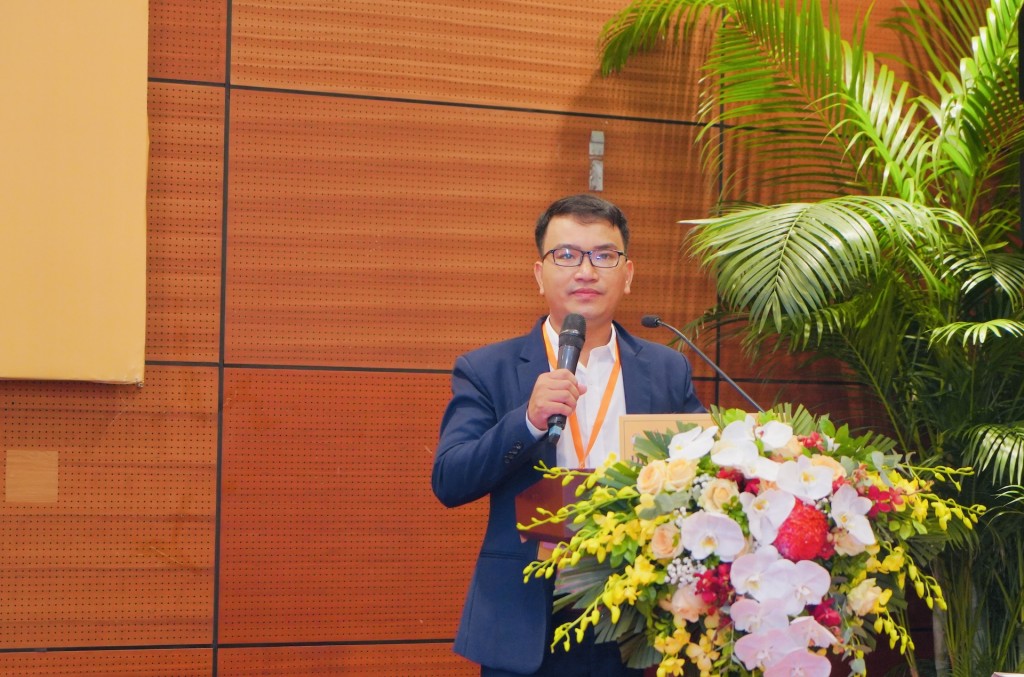
M.A. Nguyen Dang Phuong Truyen, National Academy of Public Administration, presenting at the session.
M.A. Nguyen Dang Phuong Truyen, National Academy of Public Administration, presented the paper “Digital Transformation and Innovation in the Public Sector Promoting Good Public Governance in Viet Nam”. In the current context, especially in the digital era and the VUCA context, countries face opportunities and challenges in innovation of governance at both national and local levels. Digital transformation and innovation in the public sector are important solutions to innovate national governance and local governance methods towards sustainable development. In Viet Nam, state agencies have been implementing digital transformation and innovation, and outstanding benefits of activities have been contributing to helping state agencies effectively manage issues’ local theme, better serve people and businesses. However, digital transformation and innovation in the activities of state agencies still have shortcomings and inadequacies that need to be resolved in order to innovate public governance, promote good public governance, and contribute to reforming national governance in Viet Nam.
Morning session, Sub-theme 2 (Part 2)
Dr. Peter Fong, Hong Kong Public Administration Association and Assoc. Prof. Dr. Nguyen Thi Hong Hai, National Academy of Public Administration, moderated the second part of the morning session of sub-theme 2.
M.A. Nguyen Ho Phuong Nhat, National Academy of Public Administration, presented the paper “Some Proposals for National Governance Implementation in Viet Nam according to Perception of the Resolution of the XIII National Party Congress”.
M.A. Nguyen Ho Phuong Nhat believes that the rapid development of the 4th Industrial Revolution, the unpredictable changes in the natural world, pandemics, and natural disasters have had a great impact on the development of all countries in the world, including Viet Nam. This poses a significant challenge to the current political system in Viet Nam, especially in terms of governance. Governance is a fundamental method that reflects the development of a country.
Based on a comprehensive and objective assessment of the position and role of public governance and national governance in the country’s development, the Resolution of the 13th National Party Congress has set out a strategic breakthrough task “Renewing national governance towards modernity and effective competition”. By studying the theory of governance, public administration and national governance along with a number of internationally recognized assessment indicators that reflect different aspects, M.A. Nguyen Ho Phuong Nhat proposed some recommendations when renewing public governance and national governance in Viet Nam in order to achieve the goals set by the Resolution of the 13th National Party Congress by 2030, marking the 100th anniversary of the Party’s establishment, where Viet Nam will be a developing country with modern industry and high average income.
Dr. Ma. Pamela Grace Muhi, Polytechnic University of the Philippines, presented the paper: “Towards an Institutional Framework for Integrating Sustainable Development Goals (SDG) into the Local Energy Planning Process: Learning from the Lessons of Bohol and Palawan”. The presentation affirmed that energy security plays an important role in all sectors of society in terms of attaining the long-term vision of inclusive economic and growth development of the local economy. With the growing concern on how to localize actions towards the Sustainable Development Goals (SDGs), one of the most difficult among the said goals is SDG7 – ensuring access to affordable, reliable, sustainable and modern energy for all. While the global commitments resonate in the country’s national development plans, the bigger challenge remains on the implementation and corresponding actions to fully realize the SDGs.
Dr. Ma. Pamela Grace Muhi has come up with a unified framework for assessing local energy plans, which may greatly contribute to all stakeholders involved in energy planning both at the local and national levels by identifying what needs to be done during the entire energy planning process and assess existing energy plans to address the gaps in energy security in the country. The study made use of the experiences of the provinces of Palawan and Bohol as case study, which pointed out the areas for improvement, including the need to further capacitate local energy planners across the Philippines towards developing their own local energy planning system and manage their own development.
Mr. Achyut Adhhikari, CUISSS West-Central Montreal, Canada, presented the study “Artificial Intelligence in Governance: The State of Facial Recognition Technology in Canada”. He stated that innovation in public service delivery can help the faster transformation of society to the post-COVID era. Besides minimizing administrative hassles, efficiently used Artificial Intelligence (AI) can protect citizens from unwanted behaviors. AI broadly denotes the efficiency of computers replicating human intelligence, such as identifying different patterns and making predictions and decisions.
AI encompasses numerous techniques, among which machine learning is one of the most shouted. Machine learning is a method of deploying large data sets to make predictions that improve over time and with more data. By 2030, Canada aims to have one of the most robust national AI ecosystems in the world, founded upon scientific excellence, high-quality training and deep talent pools, public-private collaboration, and their strong values of advancing AI technologies to bring positive social, economic, and environmental benefits for people and the planet. The research also proposes ideas to enhance governance to improve biometric data protection, legal frameworks, and quality standards for collecting biometric data based on the FRT. The research is based on interviews, focus group discussions and policy papers of the government of Canada and many other literatures and research articles.
Dr. Michville A. Rivera, Philippines, presented the study “Disiplina Village: Towards a Socialized Government Housing Project of Valenzuela City for Continuous Improvement of Local Government Basic Services Delivery”. Housing quality is a significant aspect of quality of life since it has a direct influence on physical, mental, and social well-being. A family’s ability to escape poverty is dependent on having a safe, decent, and inexpensive place to live. Cities and municipalities are striving to meet the needs of an expanding population. Despite the housing uncertainties, people from rural areas continue to migrate to cities in pursuit of better career possibilities. Many of these migrants live in slums and informal settlements with poor living conditions. Local government units (LGUs) in Metro Manila have developed housing policies to meet the growing number of informal settlers. The paper gives an overview and analysis of Disiplina Village, a socialized housing project in Valenzuela City that differs from other government housing programs in the country. The study analyzed the residents’ satisfaction as an indicator of the city’s socialized government housing projects.
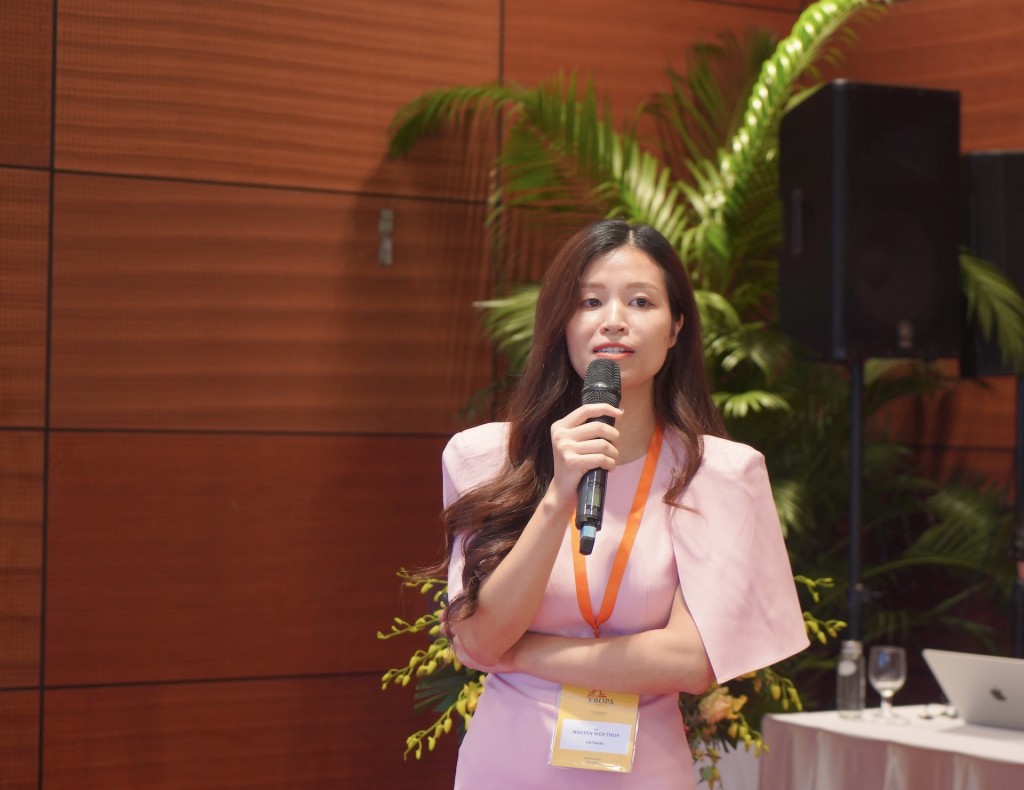
Ph.D. Candidate Nguyen Bich Thuy, National Academy of Public Administration, presenting at the session.
Ph.D. Candidate Nguyen Bich Thuy, National Academy of Public Administration, presented the paper “Renovation of the Organization and Operation of Local Governments in Viet Nam Toward the Goal of Good Local Governance”. Currently, “good governance” has a positive influence on the government reform process in many countries around the world. In essence, good governance is the set of principles and criteria on social management to maximize public interests as well as promote and ensure the harmonious and sustainable development of a country. The reform of state government and local government, according to “good governance” in Viet Nam has achieved many outstanding results: the decentralization among central and local governments has improved, and localities have more autonomy and policy space to realize their development goal; the effectiveness and efficiency of local government have enhanced. However, besides the achieved result, the organization and operation of local governments still show many limitations in the local government model; the split administrative units lead to an increasing rapid of administrative units; localities still lack resources and conditions for autonomy. This article would like to mention the achieved results, existing difficulties, and some solutions to continue renovating the organization and operation of local governments towards the goal of “good local governance”.
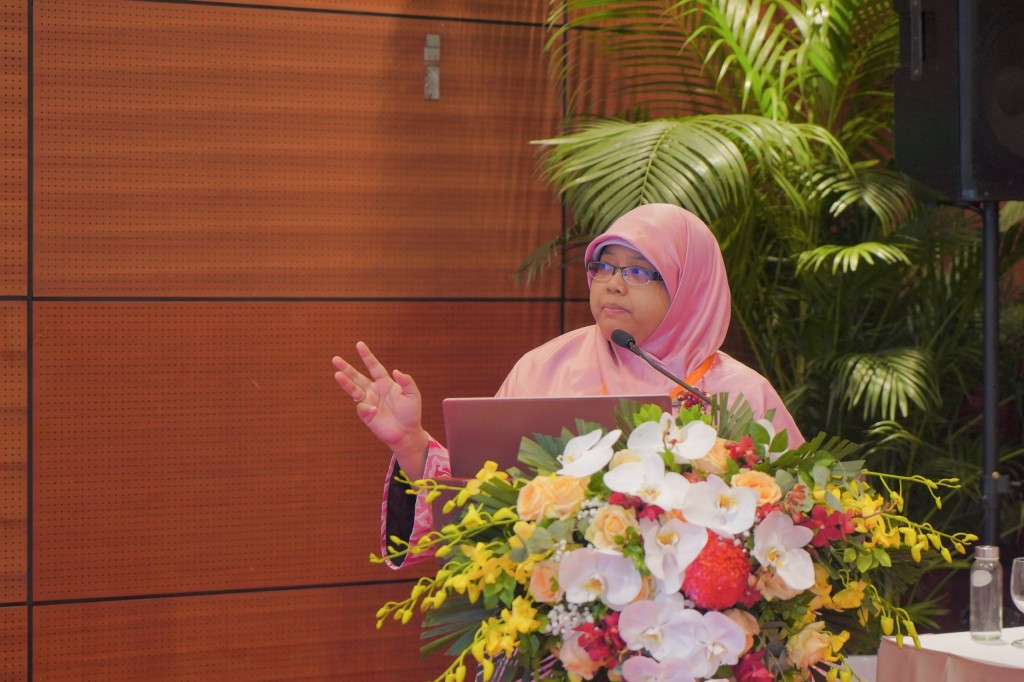
Dr. Meita Ahadiyati Kartikaningsih, National Institute of Public Administration, Indonesia, presenting at the session.
Dr. Meita Ahadiyati Kartikaningsih, National Institute of Public Administration, Indonesia, presented the study “Renewal of the Leadership Training in Indonesia: Accelerating Bureaucratic Reform and Development Priorities”. The study aims to analyze the challenges and need for leadership capacity in Indonesian civil servants and improvement of programs to support bureaucratic reform and development priorities. The study was carried out using a quantitative method through a rapid survey to get an overview of the
essential leadership skills and appropriate delivery methods. The research will enhance empirical evidence and conceptual development of leadership and management capacity development to accelerate bureaucratic reform and development priorities.
Afternoon session, Sub-theme 2
Dr. Michville Rivera, Pamantasanng Lungsod ng Valenzuelaand and Assoc. Prof. Dr. Nguyen Thi Hong Hai, National Academy of Public Administration, moderated the afternoon session of sub-theme 2.
Discussion at the afternoon session included 8 presentations by Ms. Yeonsoo Han, Dr. Nguyen Quynh Nga, Ms. Nguyen Lan Phuong, Prof. Bang Hyeon Song, Mrs. Jenny Pelasol, Dr. Arlenne Ezpinoza, Mr. Dilip Raj Paudel, Ms. KC Malsawmtluang, Dr. Lalzuitluangi, and Dr. Lalthansanga C.
Ms. Yeonsoo Han, Sungkyunkwan University, South Korea presented the study “Effects of Youth’s Savings Patterns on Independence and Future Orientation in Korea: Latent Class Analysis (LCA)”.
According to Ms. Yeonsoo Han, the Korean government has introduced various types of asset-based welfare policies to promote youth’s independence and future orientation, ultimately aiming to assist them in overcoming the challenges posed by COVID-19. Assets accumulated through saving have the potential to positively influence youth’s independence and future orientation. This study found that the repercussion of savings varies depending on the savings frequency and the amount. The findings of this study underscore the importance of forming a habit of saving consistently. It means that asset accumulation through the policy can help low-income youth overcome the socio-economic challenges caused by COVID-19. However, there are some problems with current policies in terms of fostering consistent savings habits. Therefore, the central government and the local governments should collaborate, and youth opinion should be reflected to improve current policies.
With the presentation “Renewal of the Organization and Operation of the Local Government in the Provinces to Meet National Governance Requirements in Viet Nam”, Dr. Nguyen Quynh Nga shared the following contents: an overview of local government in the province; content and requirements for renewing the organization and operation of local governments in the province; the actual situation of the organization and operation of the local government in the province compared with the requirements of national governance renewal; solutions to renew the organization and operation of the local government in the province to meet national governance requirements.
Ms. Nguyen Lan Phuong, Graduate School of Public Administration, National Institute of Development Administration (NIDA), Thailand, presented the research “The Importance of Implementing the Sustainable Development Goals for a Country’s Growth in the Post-Covid-19 Era: An Empirical Study from Viet Nam”.
By investigating the importance of the implementation of the Sustainable Development Goals for Viet Nam’s development in the post-Covid context using qualitative research methods, Ms. Nguyen Lan Phuong affirmed that it is not straightforward to both maintain the economic development and ensure community benefits. However, sustainable development is the solid foundation for the development of a country. The Vietnamese government needs a sustainable long-term strategy and improve the legal system and policies to protect the vulnerable, women and children. Hence, people are stronger after the crisis and can control the effects of social disorder.
Prof. Bang Hyeon Song, Sungkyunkwan University, South Korea, presented the paper “The Impact of Transformational Leadership and on Street-level Bureaucrats’ Job Satisfaction and Proactive Administration Behavior”. This study aims to examine what factors influence Street-level Bureaucrats’ job satisfaction, organizational citizenship behavior and proactive administrative behavior. Based on the results, it can be concluded that organizational citizenship behavior influences both job satisfaction and proactive administration among Street-level Bureaucrats. However, while transformational leadership affects job satisfaction, it does not have an impact on proactive administration. Furthermore, job satisfaction has an influence on proactive administration.
Ms. Jenny Pelasol, University of the Philippines Visayas, presented the paper “Institutional Arrangements on the Implementation of Retooled Community Support Program (RCSP) and Local Government Support Fund-Support to the Barangay Development Program in Western Visayas”. Ms. Jenny Pelasol affirmed that effective cooperation is very important in establishing harmonized interrelationships among government agencies. With the purpose of institutionalizing sustainable peace and development of the target conflict-affected communities in the country, the Philippine government launched the Retooled Community Support Program (RCSP) and Local Government Support Fund-Support to the Barangay Development Program (LGSF-SBDP) in 2019. Guidelines on the roles of government agencies were issued to define and to ensure convergence of all efforts to deliver a unified process in the operationalization of the “Whole-of-Nation approach” from the national to the regional, and down to the local government level. Drawing from document analysis, focus group discussion and key informant interviews, this study analyzes the role of institutional arrangements in the RCSP and LGSF-SBDP. Issues of fragmented coordination among different government agencies and an unclear understanding of involvement and responsibilities need to be addressed, and the coordination among different government agencies requires to be strengthened as a critical vehicle in the effective implementation of the program.
Dr. Arlenne Ezpinoza, Lyceum North Western University, presented the paper “Facilitating Factors in the Growth and Development of Large Cooperatives in Region 1”. Exploring and analyzing the factors that contribute to the growth and development of Large Cooperatives in Region 1, the study’s findings indicate that the cooperative organization’s values and principles, the members’ needs, and participation, leadership and governance, and management and administration practices facilitate the growth and development of the cooperatives. The findings also indicate the need for policy intervention to address the challenges besetting the cooperatives. For one, the government should assist the cooperatives in investing and using the latest technology, such as online and mobile banking, to improve their service delivery processes, especially in geographical areas with no existing branches. This would also improve their competitive edge in service delivery among other regional business groups. The result of the study seemingly points out the need for more investment in human capital and staff may need further retooling and upskilling in modern technology to improve processes and systems in service delivery.
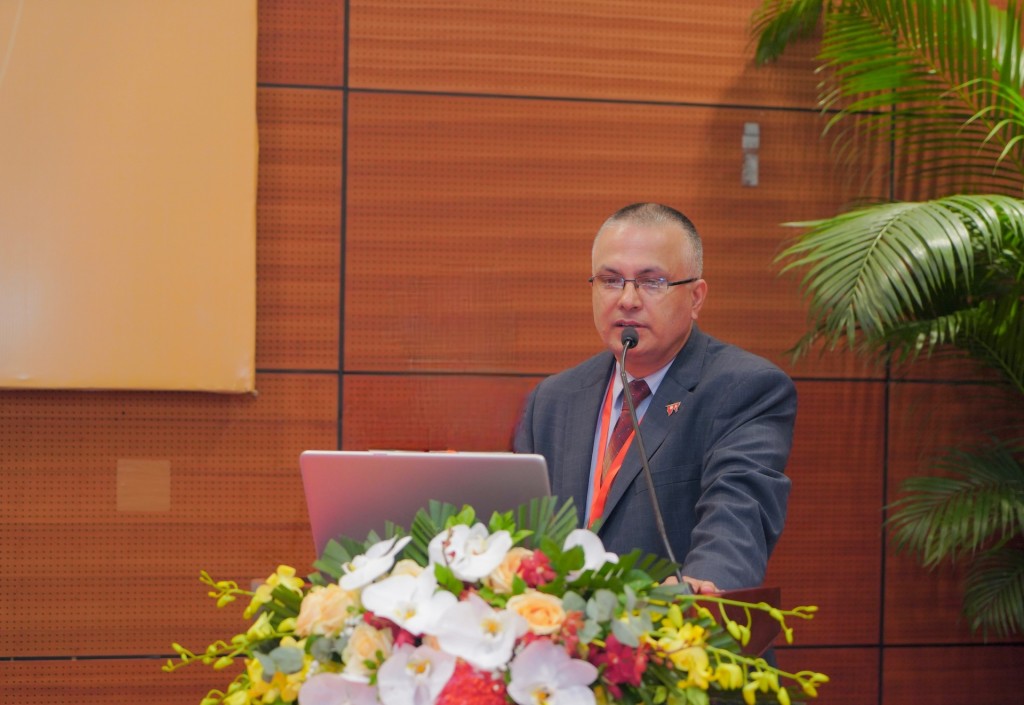
Mr. Dilip Raj Paudel, Central Department of Public Administration, Nepal, presenting at the session.
With the presentation “Applying Technology and Digital Transformation to Promote Good Public Governance in the Context of Nepal”, Mr. Dilip Raj Paudel, Central Department of Public Administration, Nepal, shed light on the potential challenges and considerations associated with implementing technology-driven solutions in Nepal’s governance framework. It highlights the need for adequate digital infrastructure, cybersecurity measures, capacity building, and inclusive policies to ensure the effective and equitable use of technology for governance purposes. Drawing from successful international experiences and existing initiatives within Nepal, his study proposes strategies to foster technological innovation and digital transformation in the public sector. It emphasizes the importance of multi-stakeholder collaboration, partnerships, and knowledge exchange to leverage the expertise and resources necessary for sustainable transformation.
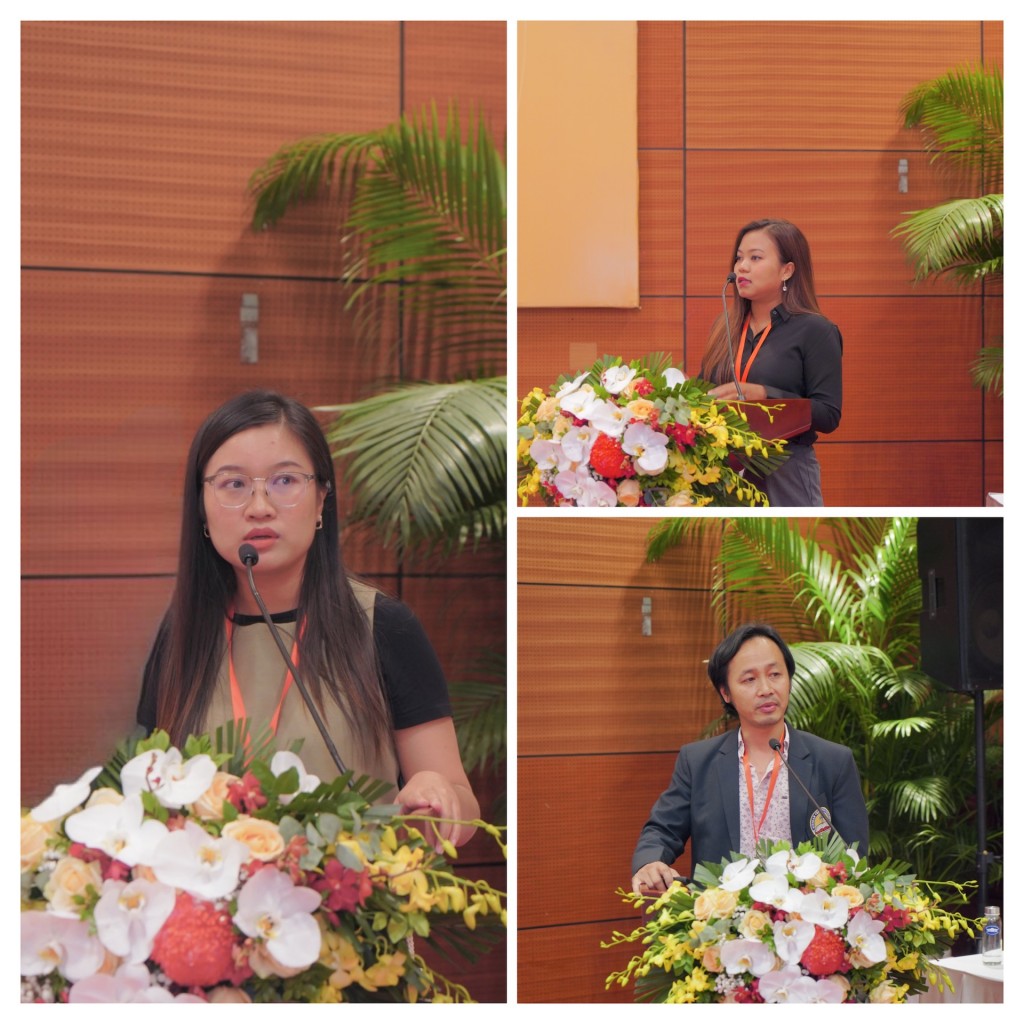
Ms. K.C. Malsawmtluang, Dr. Lalzuitluangi, and Dr. Lalthansanga C, Mizoram Christian College, India, presenting at the session.
Ms. K.C. Malsawmtluang, Dr. Lalzuitluangi, and Dr. Lalthansanga C, Mizoram Christian College, India, presented the paper “Public Administration at Grassroots Level: Case Study of ‘Ngopa’ Village Council, Mizoram, India”. The research team shed light on significant interconnecting variables vis-à-vis the effective public governance system of a small village located in the remote northeastern corner of India. Among more than two lakh fifty thousand number of panchayats/village councils functioning in India, the village of ‘Ngopa’ is awarded the National Panchayat Award, 2023, for the best aggregate performance under all themes of development – in Nanaji Deshmukh Sarvottam Panchayat Satat Vikar Puraskar category.
During the Sub-theme 2 session on October 18, the participants raised many questions related to the topics presented. The discussions were engaging and attracted scholars participating in lively debates to provide information, share strategic insights, make forecasts in explaining solutions, and offer policy recommendations for public governance in each country, regionally, and globally, in the pursuit of sustainable development.
The in-depth discussions on the sub-theme “Renewal of Public Governance to Promote Socio-Economic Recovery and Development” within the framework of the 2023 EROPA Conference have been successful, with substantive and practical academic insights that have value both regionally and globally. The discussion sessions concluded on the second working day of the 2023 EROPA Conference.


